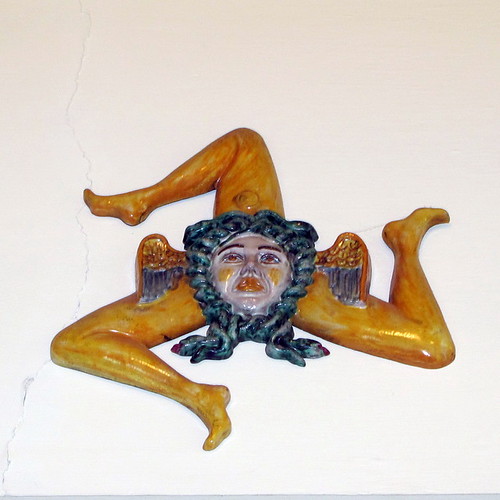 |
| The Strait of Messina |
Strait
of Messina, Italian Stretto
di Messina, ancient (Latin) Fretum
Siculum,
channel in the Mediterranean
Sea separating Sicily (west)
and Italy (east) and linking the Tyrrhenian and Ionian seas. The strait is 20 miles (32 km) long, 2 miles (3 km) wide in the north (between Faro Point and the Rock of Scylla), and 10 miles (16 km)wide in the south (between capes Alì and Pellaro); it is 300 feet(90 m) deep at the northern end.
 |
| The Trinacria, the symbol of Sicily |
The strait was greatly feared by sailors in antiquity, mainly because of
the rocks and whirlpools known as Scylla
and Charybdis,
which were personified as female monsters in Greek mythology. The strait’s currents do, in fact, present considerable difficulties. The main current runs from south to north, but a subsidiary current flows in the reverse direction. These usually
alternate every six hours, and the water falls 6 to 8 inches (150 to 200 mm) during the main current; especially strong currents tear seaweed from the bottom and sometimes throw up fish with atrophied or abnormal eyes and with organs for the production of phosphorescence. The frequent sighting of a mirage, called Fata Morgana (see Morgan le Fay),consisting of an apparent vertical elongation of an object on the
shore, helped maintain the legends of
the strait.

The major ports along the strait’s scenic banks are Messina and Reggio
di Calabria.
The coastal regions are noted for archaeological remains and resorts, and the strait is rich in fish and plankton.
This information was found in Encyclopaedia Britannica
by Ramiro, Carlos and Jose M Ruiz




No comments:
Post a Comment